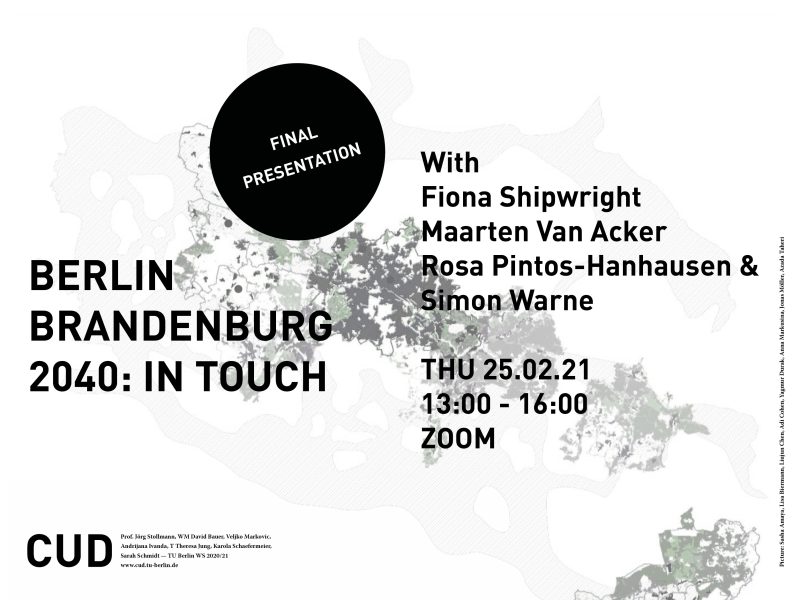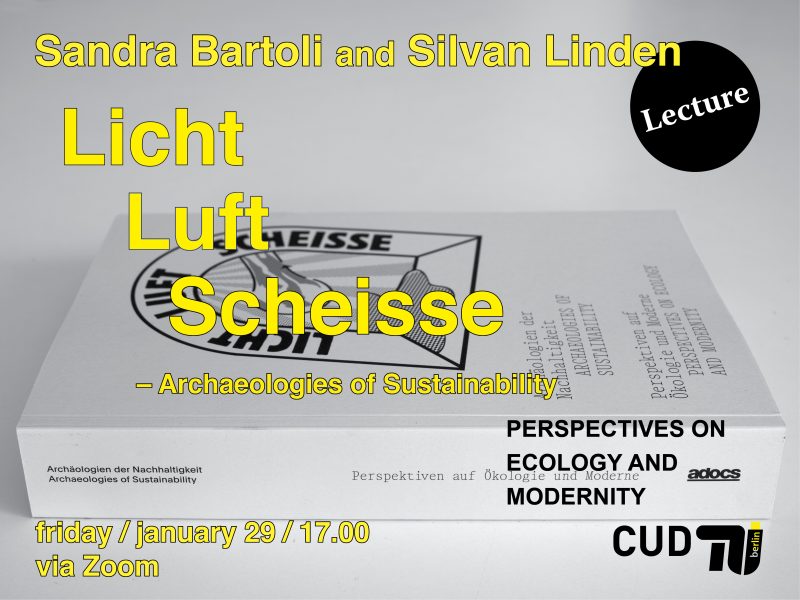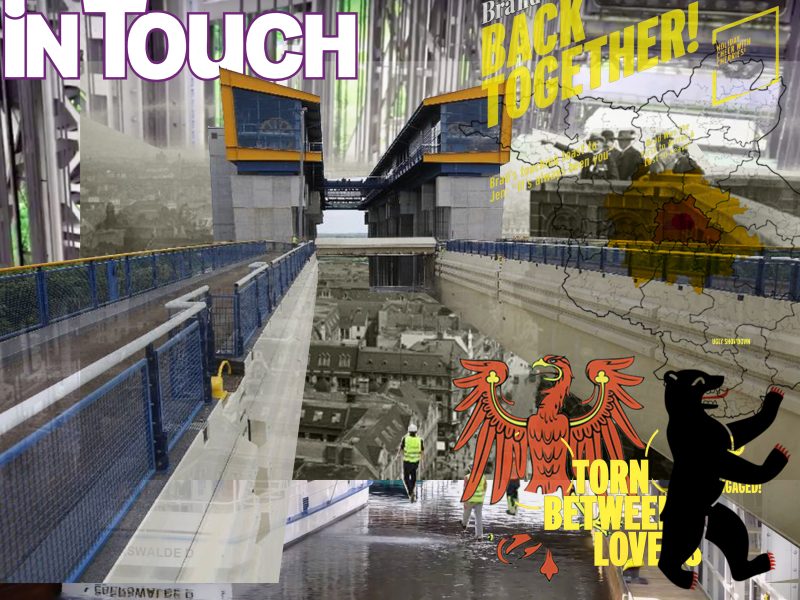Berlin Brandenburg 2040: IN TOUCH
Final Presentation
Teaching
Final presentation | Urban Design | Please join us on Thursday 25.02.21 | 1pm – 6pm | Zoom
The first semester of the Urban Design Studio investigated the potential of infrastructure networks to connect the city‘s cores with its hinterland and beyond – case in point Berlin and Brandenburg. Infrastructures both create connections and establish territories, but also cut and disrupt landscapes.
We investigated current and future infrastructures as well as infrastructures that have become obsolete and remain as ruins in the metropolitan landscape. Trailing urban transformations occurring along the intersections of various infrastructures, we searched to investigate their pasts, qualify the present and analyze the potential of the intersections in order to speculate on their roles in the future.
Our present, shaped by the global pandemic or climate change induced droughts and heat waves, brings the grave challenges to an already highly complex urban system to the fore. In order to make a future living in Berlin-Brandenburg inclusive, equitable and ecologically sustainable – values we hold dear – will require a number of vital systemic changes and infrastructural turns.
Guests:
Fiona Shipwright (HKW Berlin)
Maarten Van Acker (University of Antwerp)
Rosa Pintos-Hanhausen & Simon Warne (TU Berlin)
Teaching: David Bauer, Veljko Markovic, Andrijana Ivanda


